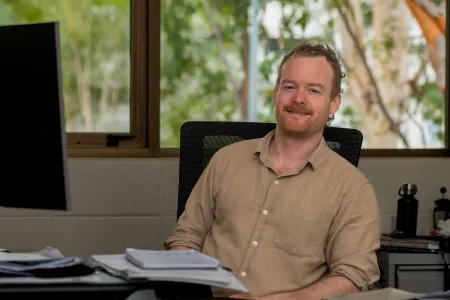News
Children are being seen but not heard in child protection, experts say
Children should be more involved and have a voice when making decisions about their protection, health experts say.
Charles Darwin University (CDU) and Australian Catholic University (ACU) in Canberra conducted in-depth interviews with 18 child protection practitioners to determine how they understood participation in the process.
The results, published in Child & Family Social Work, showed that most practitioners understood participation but found it difficult to implement. While other practitioners interviewed discussed participation as child-focused decision-making but did not refer to the child’s involvement in the process.
CDU Lecturer in Social Work and study co-author Dr Steven Roche said the results showed that decisions were often being made about a child’s protection without any input from the child.
“The research suggests that there is a gulf between the theory of participatory decision making in child protection and the practice because there is not much reference to listening before acting,” Dr Roche said.
“There is also a wide interpretation of what participation actually means in practice to decision makers.”
Dr Roche, from the College of Health and Human Sciences, said the evidence has shown that participatory decision-making succeeds, but the problem was how practitioners interpreted the nuances of participation.
Dr Elise Woodman, from the School of Allied Health at the ACU, said we need to do more to ensure children consistently have child-friendly opportunities for participation.
“We need children’s input in the ways organisations operate, more training about how to go about children’s participation, and to consider the conditions and supports practitioners need to implement good participatory practice in a demanding environment,” Dr Woodman said.
Dr Roche said the research revealed gaps between policy and practice and implementing best practices in child protection has been a challenge for decades.
“This is about children’s rights. When children are engaged and understand the process, there are better long-term results,” Dr Roche said.
“But it's difficult to find the time to develop relationships and build trust with children when you have a high caseload, the threat of worker burnout, and a high staff turnover.”
Read the full research paper here.
Related Articles

First “hype cycle” of AI development put tech above humans
Users around the world have rushed to adopt artificial intelligence - especially in safety-critical fields - but a new study has revealed the hype has prioritised technology for technology’s sake instead of human-centred development.
Read more about First “hype cycle” of AI development put tech above humans
Nanoplastics hindering cognitive abilities of fish, international research shows
Nanoplastic exposure can impair the cognitive abilities of fish and could lead to significant impacts on marine species’ ability to survive, according to a new international study.
Read more about Nanoplastics hindering cognitive abilities of fish, international research shows
New project to grow Indigenous aquaculture on one of Australia’s largest islands
An Australian island’s efforts to improve food security and transition into a blue economy will be bolstered by a new project to propagate a nutritious and increasingly popular fish.
Read more about New project to grow Indigenous aquaculture on one of Australia’s largest islands
